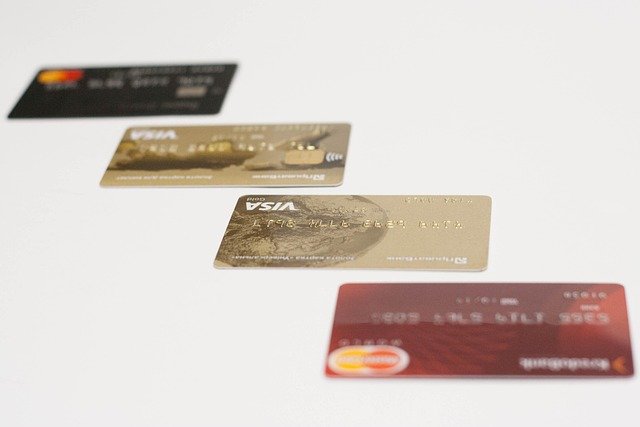Credit Cards Without Credit Checks: Fast Approval Options and Application Guide
Credit cards without traditional credit checks offer an alternative path for individuals who may have limited credit history or are working to rebuild their financial standing. These options typically fall into several categories: secured credit cards, prepaid cards with credit-building features, and cards that use alternative approval methods.

Understanding No Credit Check Credit Cards
No credit check credit cards don’t perform hard credit inquiries during the application process, which means applying won’t temporarily lower your credit score. However, it’s important to understand that most legitimate credit cards will still conduct some form of verification. True “no credit check” options are typically secured credit cards that require a security deposit or prepaid cards with credit-building features. These cards focus more on your ability to provide a deposit or demonstrate income rather than your past credit performance.
Many of these cards still report to credit bureaus, which is crucial for building or rebuilding credit history. The main difference lies in the approval process, where traditional credit scores play a minimal role in the decision-making process.
Types of Cards That Don’t Require Traditional Credit Checks
Several categories of cards fall under the no credit check umbrella. Secured credit cards are the most common option, requiring a refundable security deposit that typically serves as your credit limit. These function like traditional credit cards but with reduced risk for the issuer.
Prepaid debit cards with credit-building features represent another option, though they don’t extend actual credit. Instead, they help establish banking relationships and financial responsibility patterns. Some prepaid cards now offer services that report payment history to credit bureaus.
Student credit cards often have relaxed credit requirements, focusing more on enrollment status and income potential rather than extensive credit history. Finally, store credit cards frequently have lower approval standards compared to major credit cards, though they typically offer limited usage to specific retailers.
Why Choose a No Credit Check Credit Card?
The primary advantage of no credit check credit cards is accessibility. They provide opportunities for individuals who might otherwise be denied traditional credit cards due to limited credit history, past financial difficulties, or recent immigration status. These cards serve as stepping stones to better financial products.
Another significant benefit is the protection of your credit score during the application process. Since hard inquiries can temporarily lower credit scores, avoiding them while still accessing credit-building tools is valuable. Additionally, secured cards often graduate to unsecured cards after demonstrating responsible usage, eventually returning your security deposit while maintaining the account’s positive credit history.
These cards also offer the convenience and security of electronic payments, online shopping capabilities, and fraud protection that cash transactions cannot provide.
Building Credit History
No credit check credit cards can be powerful tools for establishing or rebuilding credit history when used responsibly. The key lies in making small purchases and paying balances in full each month. This demonstrates creditworthiness to future lenders while avoiding interest charges.
Maintaining low credit utilization ratios, ideally below 30% of available credit, positively impacts credit scores. Setting up automatic payments ensures on-time payments, which represent the most significant factor in credit score calculations. Many secured card holders see noticeable credit score improvements within six to twelve months of responsible usage.
It’s crucial to choose cards that report to all three major credit bureaus to maximize the credit-building impact. Regular monitoring of credit reports helps track progress and identify any reporting errors that might need correction.
Top Credit Card Options Without Traditional Credit Checks
| Card Type | Provider | Key Features | Typical Costs |
|---|---|---|---|
| Secured Credit Card | Capital One Secured Mastercard | No annual fee, graduation possibility | $0 annual fee, $49-$200 deposit |
| Secured Credit Card | Discover it Secured | Cashback rewards, free credit monitoring | $0 annual fee, $200+ deposit |
| Secured Credit Card | Citi Secured Mastercard | Reports to all bureaus, basic features | $0 annual fee, $200+ deposit |
| Student Card | Discover it Student | Rewards program, good grades bonus | $0 annual fee, no deposit |
| Prepaid with Credit Building | Chime Credit Builder | No fees, automatic savings features | $0 fees, no deposit required |
Prices, rates, or cost estimates mentioned in this article are based on the latest available information but may change over time. Independent research is advised before making financial decisions.
When selecting a no credit check credit card, consider factors beyond approval odds. Annual fees, interest rates, credit reporting practices, and graduation policies all impact long-term value. Some cards offer additional benefits like fraud monitoring, mobile apps, or rewards programs that enhance the overall experience.
Research each provider’s reputation for customer service and their track record for graduating secured cards to unsecured status. Reading terms and conditions carefully helps avoid unexpected fees or limitations that might hinder your credit-building goals.
Making the Right Choice
Successfully using no credit check credit cards requires discipline and strategic thinking. Start with cards that offer the best combination of low fees, credit bureau reporting, and graduation possibilities. Use the card regularly but sparingly, keeping balances low and payments consistent.
Remember that these cards serve as temporary solutions while building creditworthiness for better financial products. With responsible usage, most cardholders can transition to traditional credit cards with better terms, higher limits, and additional benefits within 12 to 24 months. The key is viewing these cards as tools for financial improvement rather than permanent solutions, using them to demonstrate the creditworthiness that opens doors to better financial opportunities.




